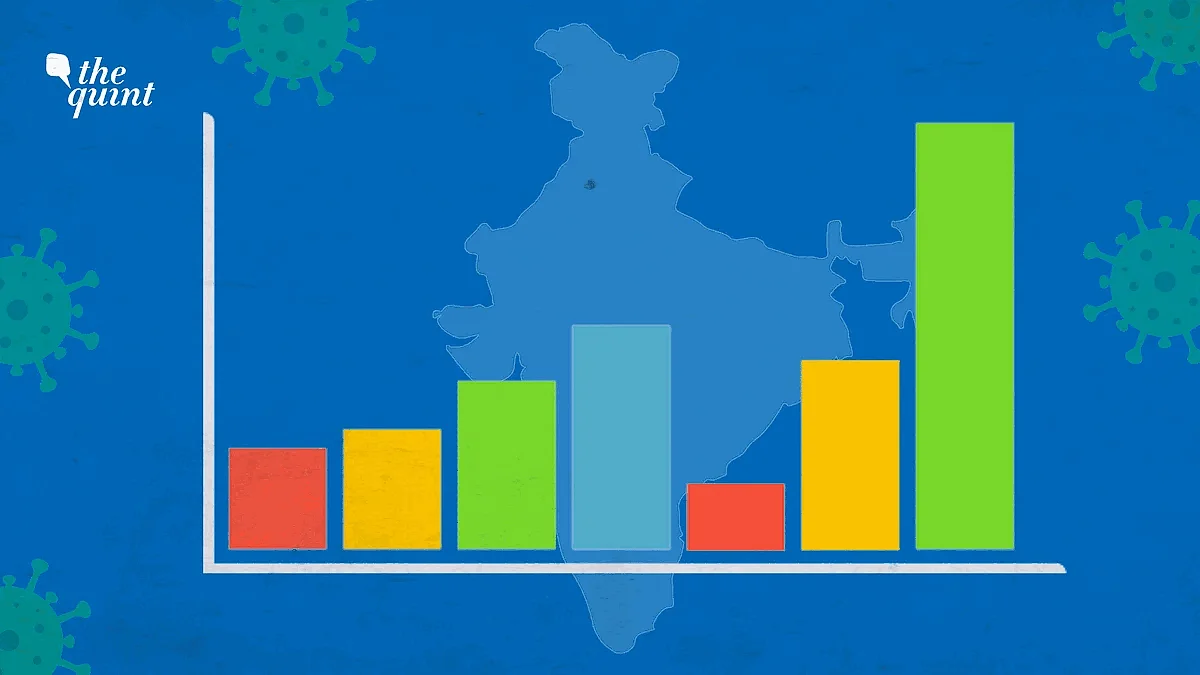Why ‘Will There Be a 4th COVID Wave?’ Is a Pointless Question to Ask
After 3 COVID waves, pandemic fatigue is setting in even as cases go up. Can the lack of response a mistake?

advertisement
India has been recording upwards of 3 thousand COVID cases a day, with a bulk of them concentrated in the National Capital Region.
It isn't alarmingly high enough to be called a full-fledged wave, but it is high enough that talks of a possible 4th COVID wave have taken over the news cycle with many asking, 'has it started?'
For one, the surge is largely restricted to Delhi NCR, and secondly, hospitalisations and deaths remain low, according to Dr Rijo M John, consultant to the World Health Organisation.
But, does that mean it's time to let our guards down once and for all?
Thinking in Waves Isn’t Helping
What even is a COVID wave? There is no official definition for what makes a COVID wave.
It's mostly an arbitrary classification based on when cases start rising and falling in large numbers across a country— a wave is, essentially, not much more than a shape on a graph.
Tracing the trajectory of waves has helped us anticipate and plan to keep COVID surges from going out of control. Even so, it has its limitations.
'COVID waves' have become less meaningful with a decline in testing.
(Photo: iStock)
"I think that the problem is that in media it is very binary. It's either fourth wave or nothing. I don't see it like that," said virologist Dr Shahid Jameel speaking to FIT when BA.2 first started making its presence felt.
The BA.2 'ripple' seems to be proof.
Mild Illness Is Still Illness
Writing for The Quint, virologist, Dr Jacob T. John explained, "Omicron infects younger people more than the earlier variants, creating a reservoir effect, further enhancing community transmission in the entire population."
Another recombinant Omicron subvariant XE is also said to spread 10 percent faster than BA.1 and BA.2.
Essentially, the virus is going to continue to spread, fast. But that doesn't mean you should start panicking, particularly if you're vaccinated.
It must be noted, though, that the parameters of 'severe illness' are also somewhat vague.
Generally, the phrase refers to any acute or chronic illness where the risk of mortality is high.
Which means, a bad bout of flu like symptoms, gastrointestinal issues, high fever, fatigue, breathlessness would all fall in the mild to moderate category as long as they can be managed at home. All of these are common symptoms of COVID, even in vaccinated people.
Moeover, a recent study conducted in the US found that Omicron is just as severe as previous variants, including Delta after accounting for the impact of vaccination.
What we do know is that as far as clichés go, prevention still remains better than cure (especially when there isn't one). Particularly in the case of people who fall in the high risk category, and children who still largely remain unvaccinated and susceptible to illness.
Experts that we have spoken to, including Dr Gagandeep Kang, and Dr Shahid Jameel have reiterated that immunocompromised people, the elderly and frontline workers should be offered booster doses or precautionary doses for their safety.
New Symptoms & the 'New Normal'
Although there is no definite explanation for why it is, doctors on the ground have been seeing more and more gastrointestinal symptoms in patient of COVID.
"In confirmed COVID positive patients, in the third wave, we were seeing many patients who were having only GI symptoms, or along with fever and cough they were also having bloating and some pain, and loss of appetite," Dr Lovkesh Anand, Consultant-Medical Gastroenterology & Hepatology, Manipal Hospital, Delhi, said, speaking to FIT for a different article.
It doesn't help that this time of the year, known as 'flu season' makes it harder to figure out if it's COVID or seasonal flu.
A study by King's College London published earlier this year, for instance, found that COVID-19 severely damages the small intestines, and disrupts the gut microbiome. Other studies, like the one conducted by the US National Institute of Health point to COVID causing alternations in brain tissue.
And that isn't the half of it. The ramifications of the damage may only show up weeks or months after infection.
Not to mention, researchers and doctors are only just beginning to figure out long COVID with an exit route still not out of sight.
Essentially, whether you're young or old, have mild illness or severe, getting COVID is still a gamble.
So, the bottom line really is, yes you're protected from severe disease and death if you are vaccinated, but it's still important to keep your masks up, maintain hand hygiene and other COVID appropriate behaviour because once infected COVID is still capable of wrecking havoc on your health, and that of those around you.